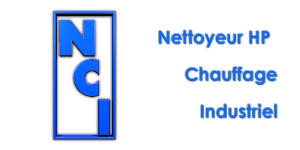The Ultimate Guide to Information Portals in the Modern Digital Era
Understanding What an Information Portal Is
An information portal serves as a centralized online platform designed to aggregate, organize, and deliver digital resources to users. These platforms streamline data access by consolidating diverse sources into a single, intuitive space. Whether for businesses, educational institutions, or individuals, an information portal acts as a gateway to relevant content, tools, and services. Its primary goal is to enhance efficiency by reducing the time spent searching for information across multiple channels.
Key Features of a High-Quality Information Portal
A robust information portal typically includes a user-friendly interface, advanced search capabilities, and seamless integration with external systems. It ensures data access is both secure and personalized, adapting to user preferences. Features like real-time updates, customizable dashboards, and multi-language support further distinguish top-tier portals. These elements collectively transform an online platform into a dynamic hub for digital resources.
How Information Portals Benefit Businesses and Individuals
For businesses, an information portal improves operational efficiency by centralizing internal processes, such as project management and customer service. Individuals gain instant data access to news, research, and tools tailored to their interests. For instance, students can explore academic digital resources while professionals can track industry trends. A notable example is the shift toward remote work, where portals enable teams to collaborate seamlessly. rich palms no deposit bonus codes demonstrate how even niche industries leverage online platforms to engage users effectively.
Top Trends Shaping the Future of Information Portals
- Artificial intelligence is enhancing data access through predictive analytics and chatbots.
- Personalized content delivery is becoming standard, driven by user behavior tracking on online platforms.
- Integration with IoT devices allows portals to offer real-time insights from physical and digital environments.
Choosing the Right Information Portal for Your Needs
Selecting an information portal requires evaluating its user-friendly interface, scalability, and compatibility with existing systems. Prioritize platforms that offer flexible digital resources and secure data access. Consider whether the portal supports mobile access, as this is critical for modern users. Testing free trials or demos can help identify the best fit for your goals.
Security and Privacy Considerations for Users
With increased reliance on information portals, ensuring data security is paramount. Look for platforms that use encryption, two-factor authentication, and regular audits to protect data access. Transparency in privacy policies and compliance with regulations like GDPR are also essential. Users should avoid sharing sensitive information unless the portal guarantees robust safeguards.
Case Studies: Real-World Applications of Information Portals
Healthcare organizations use portals to grant patients data access to medical records, reducing administrative burdens. Universities employ online platforms to centralize course materials, assignments, and communication. Meanwhile, governments deploy portals to streamline public services, such as tax filings or license renewals. These examples highlight the versatility of information portals across sectors.
Common Challenges in Implementing an Information Portal
Challenges include resistance to change, high initial costs, and technical complexities. Ensuring a user-friendly interface is crucial to adoption, as poor usability can deter users. Additionally, maintaining up-to-date digital resources and securing data access require ongoing investment. Collaboration between IT teams and end-users helps mitigate these obstacles.
Best Practices for Optimizing Your Information Portal Experience
Regularly update content to ensure digital resources remain relevant. Train users on navigating the user-friendly interface and leveraging advanced features. Monitor performance metrics to identify areas for improvement, such as slow data access or low engagement. Feedback loops with users can guide iterative enhancements to the online platform.
The Role of Technology in Enhancing Information Portals
Advancements in cloud computing, AI, and blockchain are revolutionizing information portals. Cloud infrastructure enables scalable data access, while AI personalizes user experiences. Blockchain adds transparency, making it ideal for financial or legal online platforms. These technologies ensure portals remain agile and responsive to evolving user needs.
Future Innovations in Information Portal Development
Emerging trends include voice-activated interfaces, augmented reality integrations, and decentralized information portals powered by blockchain. These innovations will further blur the lines between physical and digital digital resources, offering immersive experiences. As technology evolves, data access will become more intuitive and context-aware.
Why Information Portals Are Essential for Knowledge Sharing
In an era of information overload, information portals act as curators, filtering noise to deliver actionable digital resources. They foster collaboration by enabling users to share insights, comment on content, and participate in discussions. This collective intelligence strengthens communities and accelerates innovation across industries.
Comparing Different Types of Information Portals
Portals vary by purpose: some focus on enterprise solutions, others on consumer needs. Enterprise portals prioritize data access for internal workflows, while consumer-facing ones emphasize user-friendly interface and entertainment. Understanding these distinctions helps users select the right online platform for their goals.
How to Stay Updated with the Latest Portal Developments
Follow industry blogs, attend webinars, and join forums to track advancements in information portals. Subscribe to newsletters from leading providers to receive updates on new digital resources and features. Engaging with communities ensures you stay ahead of trends shaping the future of data access and online platforms.
Posted in: Non classé
Leave a Comment (0) →